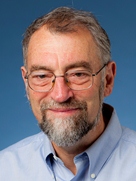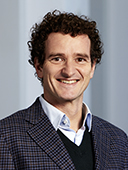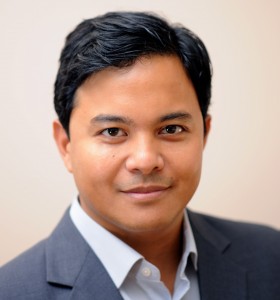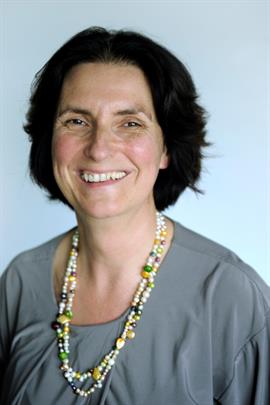ETHOS lab at the IT University of Copenhagen is an experimental space that creates value with IT by exploring data and data landscapes in contemporary society. Critical Systems supports ETHOS and its contribution toward offering more options for students interested in big data, algorithms, privacy and ethics. See more.
We are excited to offer a Phd course in Big Data and Ethics, which will explore ethical questions that have emerged in debates about Big Data approaches, processes and implications.
Dates and venue
Monday May 23 - Tuesday May 24, IT-University of Copenhagen
Credits
3.5 ECTS
Lecturers
Geoffrey Bowker, Professor, UC Irvine, Visiting Velux professor at the ITU
Allison Powell, Programme director, London School of Economics & Political Science
Rachel Douglas –Jones, Assistant Professor, IT-University of Copenhagen
Course description
This PhD course will explore ethical questions that have emerged in debates about Big Data approaches, processes and implications. The proliferation of personal and impersonal data poses new challenges to ethical questions and moral dilemmas faced by those that produce data and those that collect and use it. Todays’ researchers must address the challenges to traditional assumptions about individuality, free will and power that emerge in applications of big data in research and practice. At first glance the very largeness of the datasets involved makes the individuals whose data makes up the datasets of limited epistemological importance. After all, what is one person in a dataset of hundreds of thousands or millions of data points. Thus the requirement of real informed consent is impractical and even impossible given the scale of the datasets and the relatively unpredictable nature of potential uses of these data. Such changes raise questions for the responsible research and innovation effort across the EU.
This course proposes that topics central to ethical discussions such as research conduct, social good and avoidance of ethical pitfalls are still highly important. However, today’s researchers must also find avenues in their research through which to reconsider traditional ethical assumptions in the changing field of large data sets and shifts in potential for power among stakeholders. We invite essays reflecting on two or more of the listed topics that relate the readings to specific ethical discussions or issues encountered in the course of fieldwork and data collection experienced in students’ own research. We furthermore welcome essays that consider the challenges of interrogating, engaging and managing ethical issues in practice, including essays about how ethics are done in practice or essays that are critical of the notion of ethics itself.
Students will be organized into thematic groups based on their papers. Each will be expected to act as a discussant for another paper, and will receive comments from a visiting or local professor.
Organizers
Christopher Gad & Irina Shklovski, ITU
Prerequisites
The course is open to all PhD students within IT, but will mostly be aimed at students doing qualitative or multiple methods studies of (digital) technologies especially in the area of big data - A background in ethnography, anthropology, sociology, information studies, informatics, information systems, qualitative approaches in software development or computer science, CSCW, HCI, or science and technology studies is therefore an advantage.
Important Deadlines
*March 1st Submission of short bio of 150 words and an abstract of 200 words.
*March 15th Notice of acceptance or rejection
*May 13th Submission of paper of 5-7 pages.
*May 23th-24th Course dates
Read more on application procedure, programme, and curriculum here.



 Presenter Andrew Clement is a Professor Emeritus of Information at the University of Toronto, where he coordinates the Information Policy Research Program and co-founded the Identity Privacy and Security Institute. With a PhD in Computer Science, he has had longstanding research and teaching interests in the social implications of information/communication technologies and participatory design. Among his recent privacy/surveillance research projects are two crowd-sourced mapping tools: IXmaps.ca, which renders more visible the paths individual data packets take across the internet and where they may be exposed to NSA mass interception activities; and SurveillanceRights.ca, which documents camera surveillance installations and their (non)compliance with privacy regulations. Clement is a founder of the Snowden Digital Surveillance Archive, the world's first publicly accessible, fully searchable, multiply-indexed database of all leaked Snowden documents published by news media.
Presenter Andrew Clement is a Professor Emeritus of Information at the University of Toronto, where he coordinates the Information Policy Research Program and co-founded the Identity Privacy and Security Institute. With a PhD in Computer Science, he has had longstanding research and teaching interests in the social implications of information/communication technologies and participatory design. Among his recent privacy/surveillance research projects are two crowd-sourced mapping tools: IXmaps.ca, which renders more visible the paths individual data packets take across the internet and where they may be exposed to NSA mass interception activities; and SurveillanceRights.ca, which documents camera surveillance installations and their (non)compliance with privacy regulations. Clement is a founder of the Snowden Digital Surveillance Archive, the world's first publicly accessible, fully searchable, multiply-indexed database of all leaked Snowden documents published by news media.
 Thomas Hofmann is Full Professor at the Department of Computer Science at the ETH Zürich. After studying computer science and philosophy, he received a PhD in computer science from the University of Bonn in 1997. He held postdoctoral positions at the Massachussets Institute of Technology as well as the University of California at Berkeley and the International Computer Science Institute. He worked as first Assistant and then Associate Professor of Computer Science at Brown University, was Director at the Fraunhofer Institute IPSI as well as Professor at the Technical University Darmstadt. In 2001 he founded Recommind and from 2006 to 2013 he was Director of Engineering for Google Switzerland. His research areas include machine learning, information retrieval, natural language processing, data analytics, big data, knowledge management. See Hofmann's
Thomas Hofmann is Full Professor at the Department of Computer Science at the ETH Zürich. After studying computer science and philosophy, he received a PhD in computer science from the University of Bonn in 1997. He held postdoctoral positions at the Massachussets Institute of Technology as well as the University of California at Berkeley and the International Computer Science Institute. He worked as first Assistant and then Associate Professor of Computer Science at Brown University, was Director at the Fraunhofer Institute IPSI as well as Professor at the Technical University Darmstadt. In 2001 he founded Recommind and from 2006 to 2013 he was Director of Engineering for Google Switzerland. His research areas include machine learning, information retrieval, natural language processing, data analytics, big data, knowledge management. See Hofmann's  Presenter Nicole Dewandre is advisor for societal issues to the Director General of the Directorate General for Communications, Networks, Content and Technologies (DG CONNECT) at the European Commission. She studied applied physics engineering and economics at the University of Louvain, operations research at the University of California (Berkeley) and philosophy at the Free University of Brussels (ULB). She entered the European Commission in 1983, working in technological foresight until 1986. She then became a member of the Central Advisory Group and the Forward Study Unit, dealing with strategic analysis of research and industrial policy for the President of the Commission (1986-1992). In 1993, she supported the Belgian Presidency of the European Union in the areas of industry, energy, and consumer policies. From 1994 onwards, back in DG Research, she has been developing the "Women and Science" activities, has contributed to the opening of the EU research policy to civil society, and has been in charge of the "sustainable development" unit that has been put in place in DG Research between 2007 and 2010. In 2012, she has initiated the Onlife Initiative, which has explored how the advent of hyperconnectivity challenges policy-making, in pervasive and radical ways. She coordinates the joint approach to social sciences and humanities (SSH) and responsible research and innovation (RRI) in DG CONNECT. She is also ensuring the secretariat of the pilot Community of Practice for better self- and co-regulation.
Presenter Nicole Dewandre is advisor for societal issues to the Director General of the Directorate General for Communications, Networks, Content and Technologies (DG CONNECT) at the European Commission. She studied applied physics engineering and economics at the University of Louvain, operations research at the University of California (Berkeley) and philosophy at the Free University of Brussels (ULB). She entered the European Commission in 1983, working in technological foresight until 1986. She then became a member of the Central Advisory Group and the Forward Study Unit, dealing with strategic analysis of research and industrial policy for the President of the Commission (1986-1992). In 1993, she supported the Belgian Presidency of the European Union in the areas of industry, energy, and consumer policies. From 1994 onwards, back in DG Research, she has been developing the "Women and Science" activities, has contributed to the opening of the EU research policy to civil society, and has been in charge of the "sustainable development" unit that has been put in place in DG Research between 2007 and 2010. In 2012, she has initiated the Onlife Initiative, which has explored how the advent of hyperconnectivity challenges policy-making, in pervasive and radical ways. She coordinates the joint approach to social sciences and humanities (SSH) and responsible research and innovation (RRI) in DG CONNECT. She is also ensuring the secretariat of the pilot Community of Practice for better self- and co-regulation.
 Mark Latonero is a fellow at Data & Society, a new research institute based in New York City focused on the social, policy, and ethical issues arising from data-centric technologies. Mark is also the research director at the Annenberg School’s Center on Communication Leadership & Policy and a research professor at the University of Southern California. He has published in journals such as the Journal of Computer-Mediated Communication, Information Communication & Society, and Information Systems for Crisis Response and Management. Mark received his PhD from the USC Annenberg School for Communication and was a postdoctoral research scholar at the London School of Economics.
Mark Latonero is a fellow at Data & Society, a new research institute based in New York City focused on the social, policy, and ethical issues arising from data-centric technologies. Mark is also the research director at the Annenberg School’s Center on Communication Leadership & Policy and a research professor at the University of Southern California. He has published in journals such as the Journal of Computer-Mediated Communication, Information Communication & Society, and Information Systems for Crisis Response and Management. Mark received his PhD from the USC Annenberg School for Communication and was a postdoctoral research scholar at the London School of Economics.